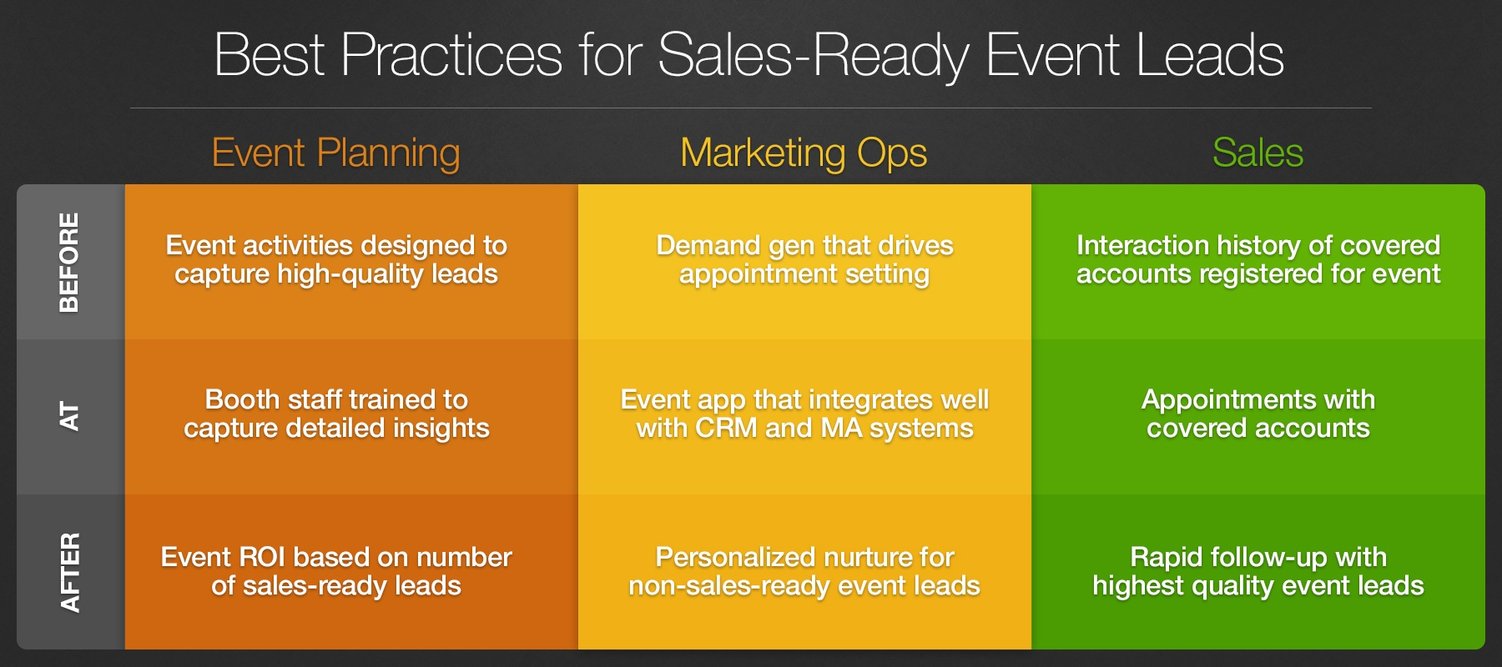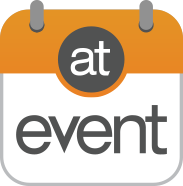At a typical medium-to-large event, your reps are engaged in dozens of conversations with prospects—whether at your booth, in a presentation, or over dinner. But only a limited amount of the intelligence gained from these interactions makes it back to the office.
Instead, contacts gained from events are usually shuffled into a standard nurture track where the repeat visitor who would have a nearly perfect BANT score is indistinguishable from thirty others who simply wanted a free lunch.
Last month, we introduced six actions that organizations can take to get more sales-ready leads from events. In this post, we’ll focus on a key element in this process: event sales intelligence.
What Is Event Sales Intelligence?
Like its cousin in the marketing automation arena—sales intelligence—event sales intelligence is data that gives sales reps the insight they need to move the sales conversation forward. The event part is that this information is gathered at events.
Event sales intelligence might include:
- Topic(s) and subtopic(s) of interest
- Follow-up action(s)
- Additional notes about the interaction
In addition, changes in a prospect’s company or position should be mapped and included in the intelligence pool.
How Can Event Sales Intelligence Make a Difference?
Consider a hypothetical prospect named Sunil who scanned his badge to get the free lunch you offered. Sunil lives in your territory, but his badge listed the address of the corporate office, in a different state. It also listed his previous role; in his new capacity, Sunil has much more power to make purchasing decisions. Also invisible in Sunil’s badge scan record is the fact that before getting that free lunch, he spent fifteen minutes talking to one of your booth staff, asking detailed questions and providing tons of information about his needs.
Sunil is super interested in your solution, has the power to make a decision, and is right down the street—but his contact record has gotten lumped in with all the others gathered at the event. By the time it goes from the spreadsheet into your CRM and onto a list for nurture, days or weeks may have passed. When that follow-up email does come, Sunil might open it and click that Set Appointment button … but he might not.
Wouldn’t it be great if, instead, Sunil’s record included accurate contact information, notes from the conversation, his top interest area and a specific follow-up action? What would happen if a record with these details got to a sales representative within the first 24 hours after your event?
Event Sales Intelligence Starts Before the Event
Sunil’s story illustrates the need for a simple, flexible and powerful way to capture insights about prospects at events and get that information into your marketing automation or CRM system quickly. There are a number of apps available (including ours) that can help you capture and use this intelligence to accelerate sales.
But let’s back up a bit and look at the broader picture. In this situation, Sunil came to your booth, offered up valuable information about his status, and then left relatively unnoticed. What if, instead, the sales rep who covers Sunil’s account knew beforehand that Sunil was going to be at the event? What if she were able to brush up on his and his account’s recent history with your company, and then set up an appointment with him for during the event. How much closer would she be to that sale than in the typical event scenario described above?
Create a Strong Path from Event Planning to Sales
This scenario may seem like a far-off dream, but much of it can be accomplished today. The key? Event planning, marketing and sales need to focus on pre-event, at-event, and post-event efforts that drive sales-ready leads.
Here’s what this alignment around sales-ready leads should look like:

Event sales intelligence is the currency of these efforts. From event planning to follow up, it provides marketing and sales the insights they need to move prospects down the sales path faster.
Stay tuned for our upcoming series exploring these pre-event, at-event, and post-event activities in much more detail.
In the meantime, what is your biggest barrier to getting sales-ready leads from events? Let us know in the comments!








